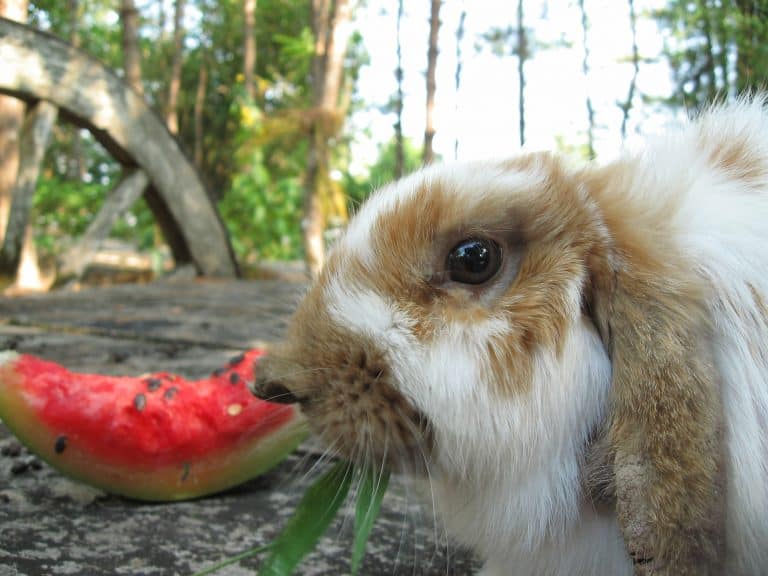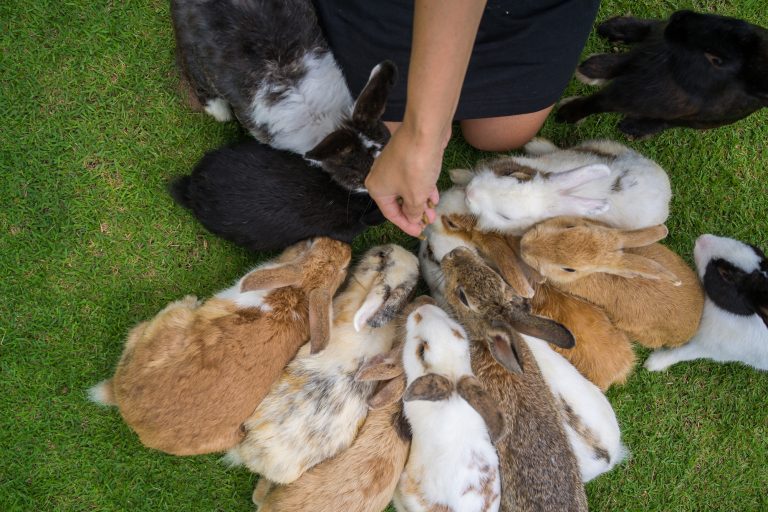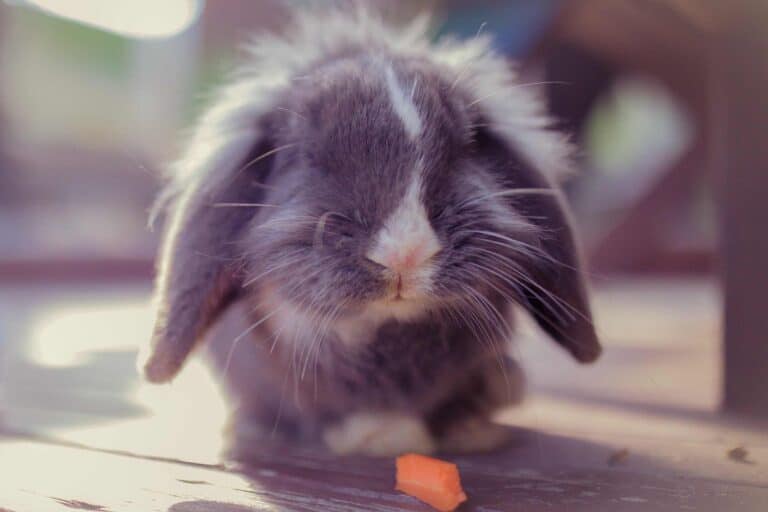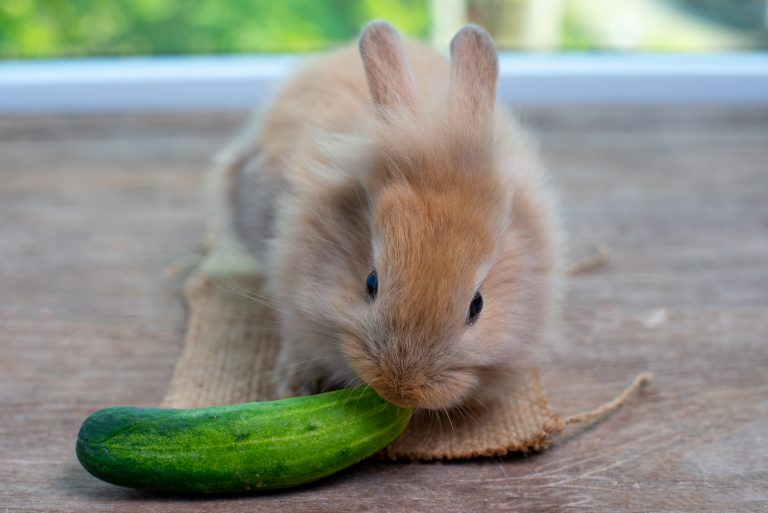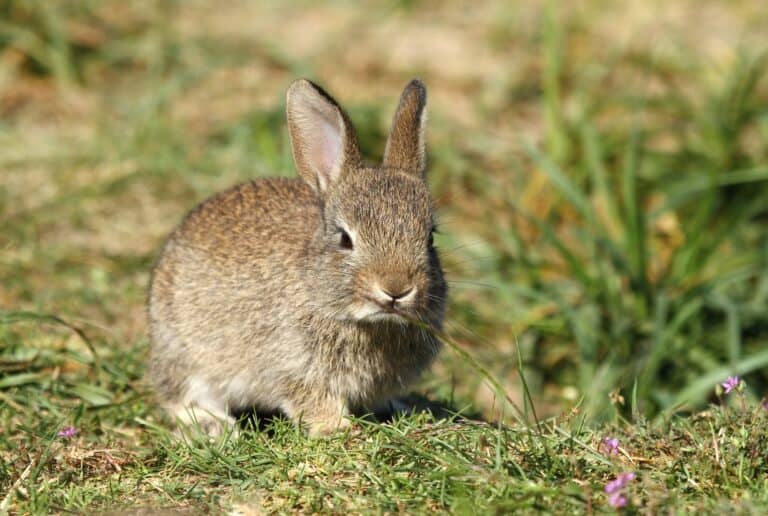Can Rabbits Eat Asparagus? 11 Things You Need to Know!
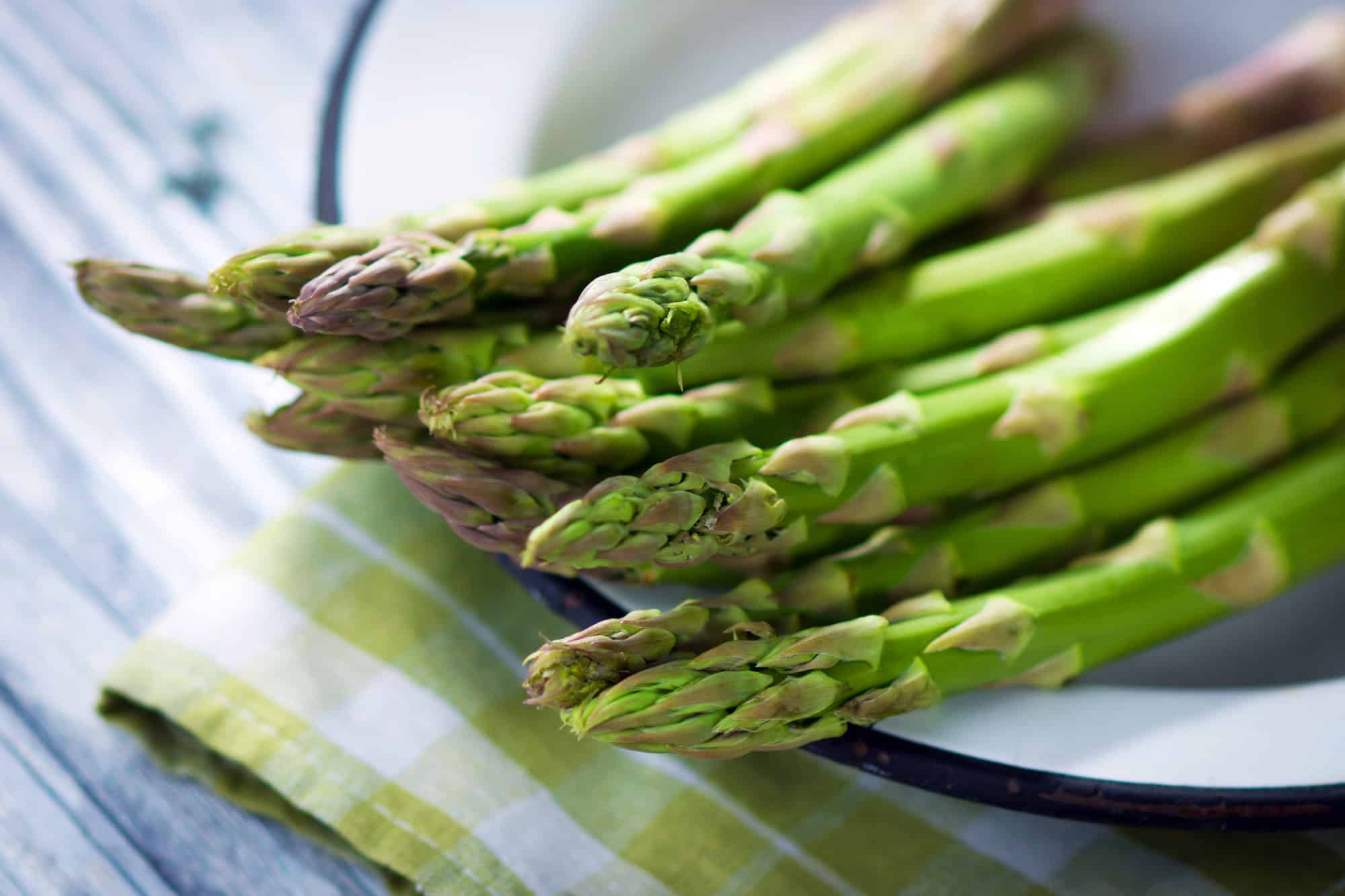
Because rabbits have sensitive digestions, you’ll have to take extra care in choosing the foods you feed your pet. For example, asparagus is not only tasty but is a nutritional powerhouse that provides plenty of health benefits for humans. But can rabbits eat asparagus, too? Will this tasty veggie help in your efforts to give your pet rabbits a balanced diet, or will it have adverse effects, such as stomach problems or, worse, GI stasis?
Let’s talk all about asparagus so you can decide if your rabbit can have asparagus or if you should take it off your rabbit’s food list.
#1 What’s in Asparagus?
A part of the lily family, fresh asparagus is chockful of vitamins, minerals, and antioxidants that enhance your health and that of your furry pal. A cup of raw asparagus contains the following nutrients:
- Carbohydrates
- Protein
- Fiber
- Vitamin C
- Vitamin K
- Vitamin A
- Vitamin E
- Folic acid or Vitamin B-9
- Amino acid
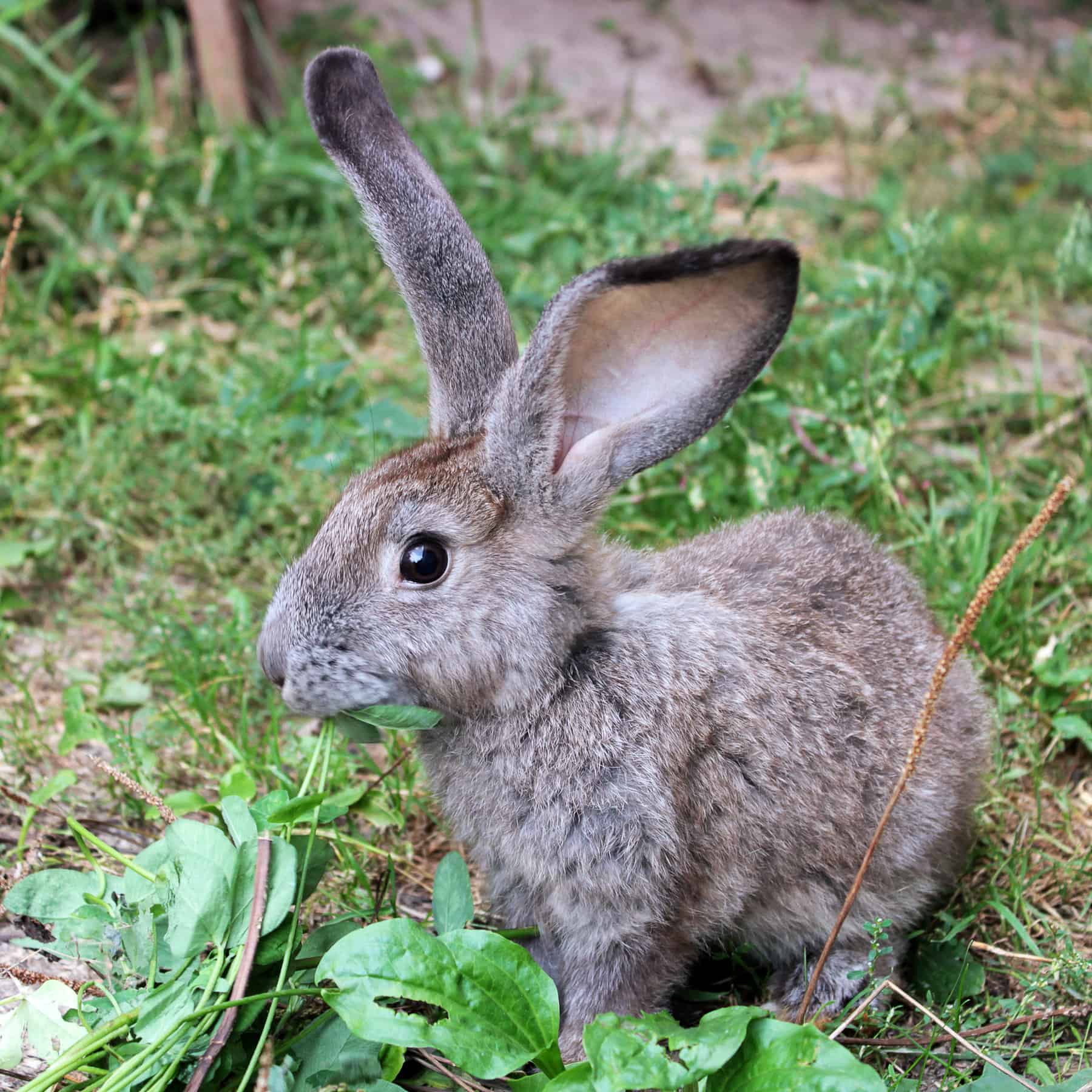
#2 Types of Asparagus
When it comes to this yummy veggie, you can choose from several varieties. Let’s look at the 3 most popular kinds.
- Green asparagus: This is the classic, most common type you’ll find in grocery stores. It’s a vibrant green asparagus fern with a slightly grassy flavor.
- White asparagus: Now, white asparagus is a bit fancy. It grows underground, away from sunlight, which gives it a unique pale color. It has a milder taste than green asparagus and is often favored in European cuisines.
- Purple asparagus: Yes, you heard it right—purple asparagus. This variety stands out with its vibrant purple hue. It’s sweeter and slightly fruitier than green asparagus.
The nutritional contents of each type are pretty much the same, so your furry buddy can chow down on any type of this nutrient-rich vegetable.
#3 Health Benefits of Asparagus for Rabbits
The range of nutrients in asparagus can boost your rabbit’s health. First, this veggie is 92% percent water. This high water content helps hydrate and keep your rabbit cool, particularly during hot weather. It also contains plenty of fiber, and a diet with high fiber content is precisely what your bun needs to prevent digestive issues and keep his perpetually growing teeth in check.
Moreover, asparagus is low in calories, sugar, and calcium. Adult rabbits readily absorb calcium, more so than other animals. Too much of this mineral can lead to kidney trouble. Because of its low calcium content, asparagus makes an excellent occasional treat for your pet.
Vitamin C promotes optimal muscle development and maintains a healthy immune system. Meanwhile, Vitamin K helps keep the blood system in good working order, and vitamin E acts as an antioxidant that protects the cells against destructive free radicals.
On top of that, its balanced ratio of proteins, fats, and carbs makes asparagus one of the healthiest vegetables around.
#4 Do Rabbits Like Asparagus?
Fortunately, most rabbits like asparagus, so the health benefits it offers won’t go to waste. In the wild, bunnies often look for food that contains the components they need to survive, such as plant material with high fiber content. That’s why it comes as no surprise that pet rabbits love asparagus.
Of course, each bun is unique, so your happy hopper might turn his cute button nose up at this veggie when it’s introduced as a new food. No worries. You can serve it another time or choose other vegetables to round up his diet.
#5 How to Feed Asparagus to Your Rabbit
Your rabbit’s diet should consist mainly of hay. Remember how your pet started on Alfalfa hay when he was a baby and young rabbit? You probably shifted him later to Timothy or other types of hay because Alfalfa hay is too rich in protein and calcium for adult buns.
You don’t cook hay before giving it to your fur baby, right? That’s because buns thrive on a raw foods diet. After all, wild bunnies don’t steam, boil or fry their veggies, and their domesticated kin retained the preference for raw stuff. Fresh, raw asparagus suits rabbits best and provides the most health benefits.
That said, you should serve your pet only small pieces of the veggie. Think of it as an occasional treat, not a major part of his diet.
Also, be cautious of the portion you feed your bun for the first time. Keep it light. Like with other foods, your rabbit will need time to adjust to eating asparagus. You’ll want to make sure he won’t experience digestive issues.
You can start with a small portion or a couple of asparagus stems. In this way, you can see how his system reacts. Don’t give in even if your furball begs for more. Wait 24 hours and watch for signs of illness or adverse reactions. If his poop stays normal and he looks hale and healthy, you can gradually increase the amount of asparagus over time.
#6 Steps in Giving Asparagus to Rabbits
Asparagus can be a nutritious addition to your rabbit’s mealtime repertoire but before you start dishing out this crunchy treat, you must know the proper steps for feeding asparagus to your rabbit:
- Provide high-quality asparagus, organically grown, if possible. If you can grow your own fresh, garden asparagus, so much the better.
- Wash the asparagus stalks carefully to remove dirt, pesticides, and other chemicals.
- Cut the stalks and spears into tiny, bite-size pieces.
- Mix a small amount of asparagus with other veggies you feed your fur baby.
- Supply your pet rabbit with fresh water in a bowl or bottle 24/7.
#7 How Often Can Rabbits Have Asparagus?
Like other veggies, such as broccoli or spinach, it’s a good idea to not make asparagus part of your bunny’s diet, and it shouldn’t be a significant portion of his meals. Three to four times a week would be fine.
Variety is the spice of life, and the same goes for your fluffy companion’s meals. Provide a diverse range of fresh veggies, hay, and high-quality rabbit pellets, along with asparagus, to ensure he has a balanced diet.

#8 How Much Asparagus Can Rabbits Eat?
While asparagus offers plenty of nutritional value to your furry friend, it’s important not to offer it in large amounts. You see, a rabbit’s digestive system thrives on a steady dose of foods with high fiber content, with hay being the star of their healthy and balanced diet.
Asparagus is water-dense. While that can help with hydration, too much can lead to not-so-fun problems like diarrhea, bloating, and even GI stasis. When it comes to the amount of asparagus you give your pet, his size would determine the serving portion.
For example, a few asparagus stalks might be fine for a Giant Angora, while a Netherland Dwarf could handle only a couple of spears without experiencing stomach problems.
The rule of thumb is 1 cup of veggies or leafy greens for every pound of rabbit weight. Also, the veggies should comprise only up to 10% of your pet’s diet, with hay taking up a major portion.
#9 The Risks of Having Too Much Asparagus
Rabbits love to munch on greens and other veggies, asparagus included. However, although asparagus is packed with nutrients, feeding excessive amounts to your bun can lead to health problems. As such, moderation is key when it comes to treating your fluffy companion to this particular green.
Here are some not-so-pleasant side effects of having too much asparagus:
Gastrointestinal (GI) Stasis
Although asparagus does have a high fiber content, it’s still not a good substitute for hay. Eating too much of it could cause an imbalance in your rabbit’s gut flora, leading to stomach troubles and even GI stasis.
Diarrhea
The veggie’s high water content can soften your bun’s stools, leading to diarrhea. Because of a rabbit’s sensitive digestion, a simple bout of this ailment sometimes causes more serious health issues.
Uneaten Poop or Cecotropes
It sounds gross, we know. But rabbits do eat their poop, although it’s not ordinary droppings they feast on. The poop rabbits need is called cecotropes, which is partially digested food material that contains nutrients and beneficial bacteria.
Bunnies need to consume their cecotropes to get the nourishment the droppings contain. Rabbits who don’t eat their cecotropes lose out on the health benefits of this special poop type.
However, rabbits prefer their cecotropes to be smooth and squishy. Because asparagus is 92% water, having too much of it in their diet can make their droppings too soft, which your pet won’t find appealing.
#10 Can Rabbits Eat Asparagus Stalks?
Yes, rabbits can have asparagus stalks, but that depends on age. Baby rabbits (3 months old) shouldn’t eat the stalks as this part is more rigid than other portions of the plant. Young rabbits might find it difficult to chew and digest the asparagus stalks.
#11 Can Baby Rabbits Have Asparagus?
Young buns have more sensitive digestions than mature rabbits, so avoid giving asparagus to bunnies under 12 weeks old. Instead, they should eat Alfalfa hay, which makes excellent food for baby rabbits.
Also, when you start feeding asparagus to young buns, give extremely small amounts. Discontinue offering the veggie if you see any adverse reaction.
Asparagus is a safe and nutritious treat that can provide a range of health benefits for your hoppy companion. However, as with any new addition to a rabbit’s diet, introduce asparagus gradually and in small quantities to avoid digestive upsets.
Also, ensure it is fresh, free from harmful pesticides, and properly washed before serving it to your bunny.
More about Rabbit Diet
- Is Orchard Hay Good for Rabbits?
- The Best Lettuce for Rabbits: What Type Can They Eat
- Complete Guide to the Best Hay For Rabbits: Reviews & More
- What Can You Feed Wild Rabbits: A Comprehensive Guide
- Can Rabbits Have Cabbage? What You Need to Know!
We hope you enjoyed this post! If you did, will you give it a share or two 🙂 Thank you! ~from Every Bunny Welcome



